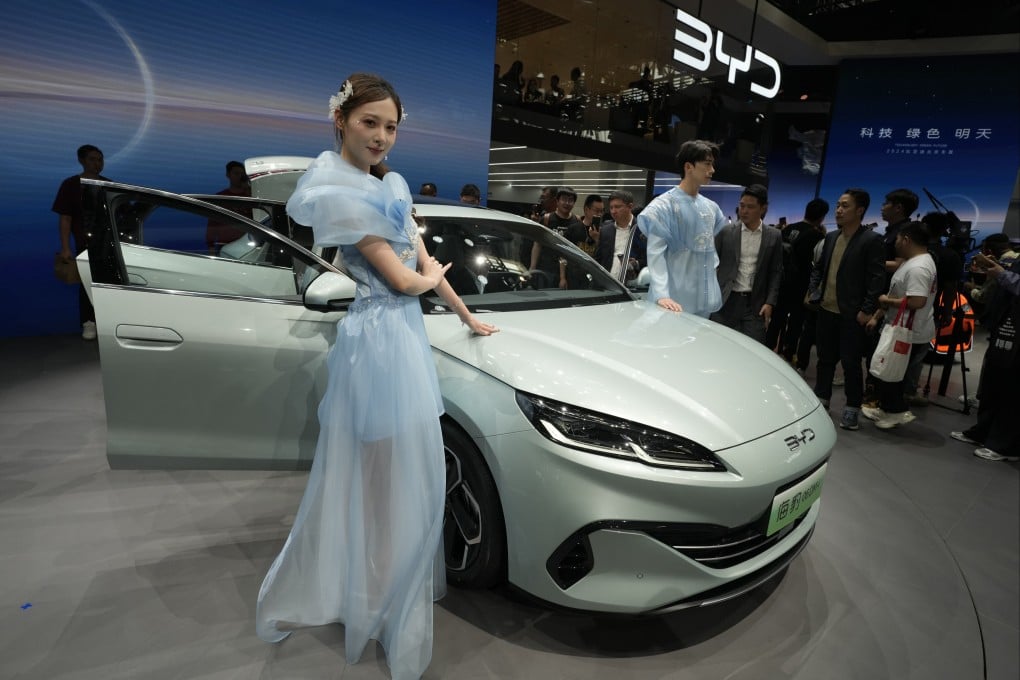China EV wars: BYD mounts ‘big challenge’ to petrol-guzzling rivals with its new fuel-efficient hybrid technology
- Two new models fitted with the updated tech will ‘bring young consumers a new option as they pursue high-quality new-energy cars,’ says BYD
- The Qin L and the Seal 06 can go as far as 2,100km on a single charge with a full tank of petrol, BYD claims

The world’s bestselling EV builder, backed by Warren Buffett’s Berkshire Hathaway, said two brand new models to be fitted with the new technology will become pioneers that help propel a transition to electrification on China’s roads.
The two new models fitted with the latest DM (dual model) technology – the Qin L and the Seal 06 – can go as far as 2,100km on a single charge with a full tank of petrol, BYD claims. The batteries used to power the basic versions offer a driving range of up to 80km.
The fuel consumption per 100km, when the batteries are depleted, is a record low 2.9 litres, the statement said. In comparison, a typical plug-in hybrid car uses 3 to 5 litres of petrol for every 100km travelled.
BYD said the new models can save owners an annual 9,682 yuan (US$1,336) in fuel costs compared to petrol cars.
